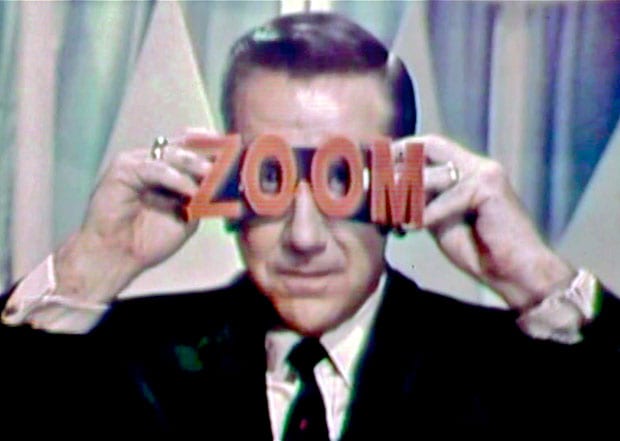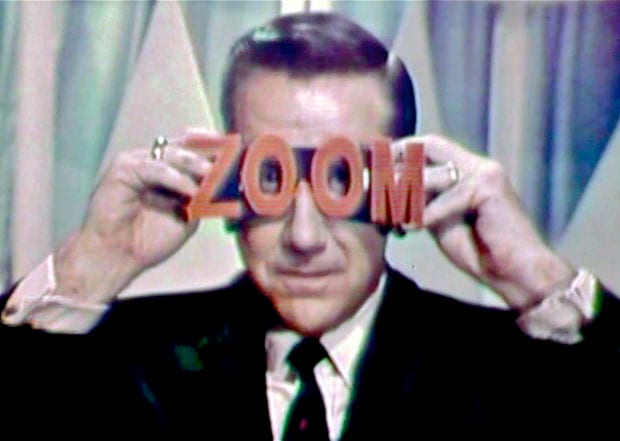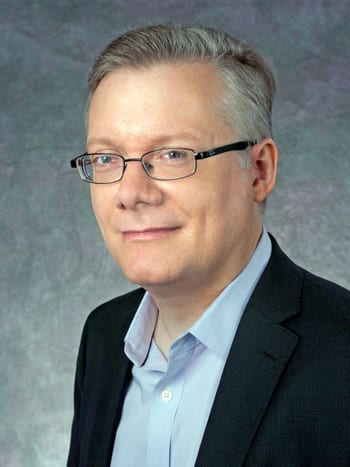Former ‘Letterman’ writer Steve Young celebrates the weird, campy underground art of industrial musicals

Humorist Steve Young explores the crazy world of forgotten musicals, written for trade shows and other avenues of corporate America, in his touring comedy show.
Lavish, costly, performed only once, industrial musicals were like Broadway shows written for boardrooms. Often starring top talent and written by folks (like the gay composing team Kander and Ebb) who’d later have Broadway hits, they sang of toilets and tractors, dog food and Dodge trucks.
Longtime Late Show with David Letterman and Maya & Marty comedy writer Steve Young has become an expert on and champion of vintage “industrials.” He’s collected more than 200 shows on LP, co-written a book (Everything’s Coming Up Profits, with fellow enthusiast Sport Murphy) and now is on a cross-country show-and-tell tour of stories, plus film and audio clips, titled The Lost World of Industrial Musicals, coming to the Texas Theatre Thursday.
It was in dusty bins of LPs at used record stores and then in listings on eBay that Young came across discarded gems issued as souvenir albums for sales meetings and trade shows. Ford-i-fy Your Future was a 1959 Ford tractor musical written by Sheldon Harnick and Jerry Bock, years before they hit big with Fiddler on the Roof. Go Fly a Kite, a recording of a 1966 GE employee extravaganza, was by John Kander and Fred Ebb, later famous for Cabaret and Chicago. (You can hear some of the tunes online at IndustrialMusicals.com.)
Broadway performers loved doing industrials, says Young, because they paid better than union minimum. Bob Fosse, Chita Rivera, Florence Henderson, Hal Linden, Sarah Jessica Parker and queer Texas legend Tommy Tune all did them, as did Adam Lambert in his pre-American Idol days. Linden has said income from gigs like Diesel Dazzle, done by GM in 1966, kept him from having to drive a cab or wait tables.
Before arriving in Dallas, Young took a break to preview what to expect in his appearance here and just how gay those old industrials were allowed to be.
— Elaine Liner
Dallas Voice: Many of the performers in them were gay, but how campy could these industrial musicals be in the gray flannel Mad Men era? Steve Young: The corporations were generally very conservative socially, though occasionally you see them being a bit progressive in casting people of color in the mid ’60s, or trying to portray women as more than wives or scantily-clad dancers. I don’t recall any gay overtones in any show… however, a performer once told me about a car company dress rehearsal in the ’60s attended by all the top company brass. During a demonstration of a truck’s lift gate, one cast member accidentally pinched another’s finger. The man was obviously in great pain, and the other guy, not knowing what else to do, kissed him. There was a sudden silence. Everyone thought, oh, now there’s going to be trouble with the executives. But it was never mentioned. I guess “show people” got a certain amount of leeway.
Mary Kay’s annual convention in Dallas still employs scads of performers for entertaining its sales force. Are any of those shows in your collection? I have a record album that was part of a 1972 Mary Kay training kit, which has a batch of popular songs rewritten to be about selling Mary Kay. “Gentle On My Mind,” “Deep in the Heart of Texas,” “When the Saints Go Marching In”… apparently Mary Kay folks were encouraged to sing along. There’s definitely a proud history of the direct sales companies like Mary Kay and Tupperware having fun conventions.
Do you have a favorite industrial show? It’s a tie between Diesel Dazzle, the Detroit Diesel Engine show from 1966, and The Bathrooms Are Coming!, the American-Standard 1969 show about plumbing fixtures. Both have truly impressive, catchy music that juxtaposes wonderfully with the wildly improbable subject matter. The Bathrooms Are Coming!, or TBAC as insiders call it, had songs by the late Sid Siegel, who I got to meet and interview before he passed away last year at 88. Diesel Dazzle was by the great team of Hank Beebe and Bill Heyer. Beebe is 90 and I’ve gotten to know him quite well. There’s no film of Diesel Dazzle that I know of, but I will screen a film of another Beebe/Heyer project, the extremely entertaining 1973 General Electric silicones film. And I am thrilled to say that I will be screening The Bathrooms Are Coming! Quite often the material was very creative, even surreal. Many of the film clips I’ll be showing in Dallas are out-of-this-world strange, intentionally or not.
Your old boss, David Letterman, is executive producing a documentary based on your book. Was that your idea? The film, which is in production, wasn’t my idea. Some talented filmmakers got interested after the book came out. In my show I’ll have a four-minute sample of the documentary. I’m delighted to mention it’s one of four documentaries selected by Sundance Producing Lab to mentor over the coming year.
Do you miss having a nightly show to write for with a target like Donald Trump to skewer? I have to admit, I was relieved that I didn’t need to think about Trump jokes during the past year. I don’t naturally gravitate toward political humor. I don’t know whether the best possible Trump jokes and bits from Dave would have made any difference in how things have played out. Almost all political humor seems to be preaching to the choir. I do miss being part of a nightly show, though, where a silly idea at 9 a.m. could be a fully-produced bit making an audience laugh later the same day
This article appeared in the Dallas Voice print edition July 29, 2016.














